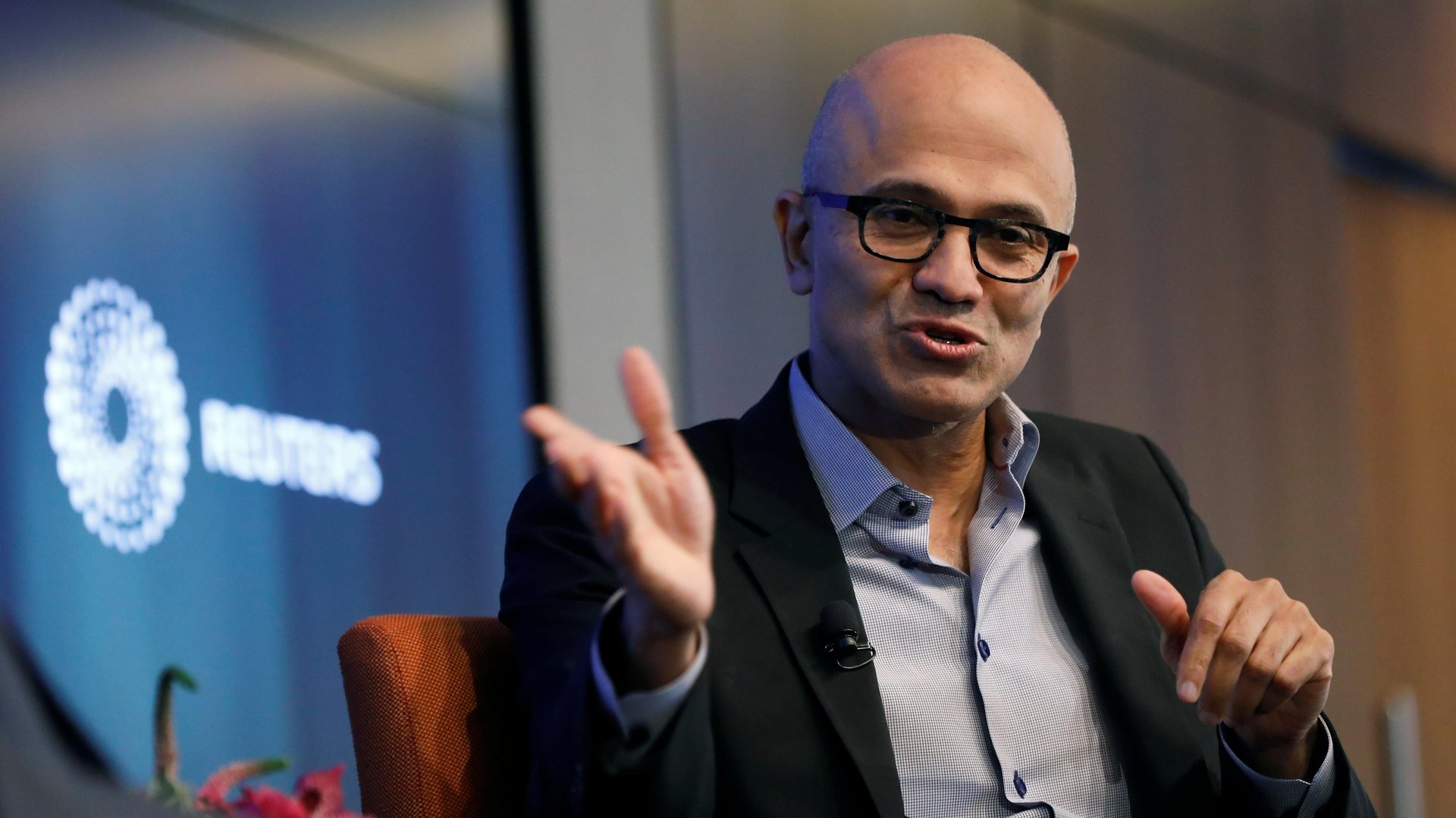AI enthusiasm is driving Microsoft’s cloud business higher
More than half of Fortune 500 companies use Microsoft's Azure AI models, CEO Satya Nadella says

Tech layoffs are happening—and Microsoft is no exception. But Microsoft’s bottom line is thriving. In the last three months ending Jan. 30, the company recorded revenue of $62.0 billion, up 18% from the same period last year. The tech giant’s cloud business, which includes its Azure division, posted revenue of $25.9 billion, up 20%.
Suggested Reading
Earnings exceeded Wall Street expectations, but investors seem to be unimpressed. Microsoft stock was down 0.28% in after-hours trading.
Related Content
Microsoft, a leader in the generative AI industry, faces pressure to deliver to investors, who are looking to see how companies are making money on the novel technology that powers chatbots like Bing and ChatGPT.
“We’ve moved from talking about AI to applying AI at scale,” Satya Nadella, the CEO of Microsoft, in a statement. Just last quarter, Nadella said, “With copilots, we are making the age of AI real for people and businesses everywhere.” The change in language highlights the company’s confidence in the progress of Microsoft’s generative AI business.
Microsoft’s cloud business, which includes its Azure division, posted revenue of $25.9 billion, up 20%. The Azure AI platform houses large language models from OpenAI, as well as open-sourced models such as Meta and Hugging Face, which customers can use to build their own AI applications.
In the last 12 months, the company added 53,000 Azure AI models, Nadella said on a conference call with analysts and investors. More than half of the Fortune 500 companies use Azure AI models today, he added.
The earnings come as layoffs have been plaguing the tech industry. Headcount at the end of December was down 2% compared to last year, according to Amy Hood, the company’s CFO.
Microsoft sees AI assistants as a real business
Revenue growth of Office 365 commercial revenue is also up 17%. Microsoft last year made waves in announcing various AI assistants called “copilots,” which became widely available starting Nov. 1. The idea is that workers will be able to have an AI assistant that helps them draft up emails and sum up notes. The AI assistant costs $30 per user per month, in addition to what businesses already pay for Office products.
For now, though, Microsoft executives say the most popular use case for these tools is simply to summarize notes, suggesting that workers are still wading into new territory.